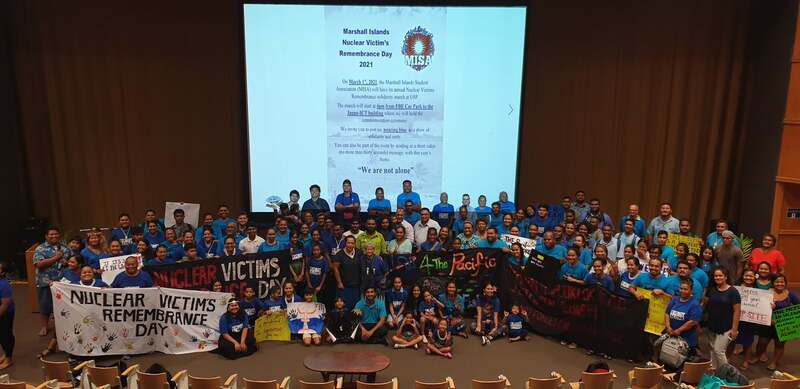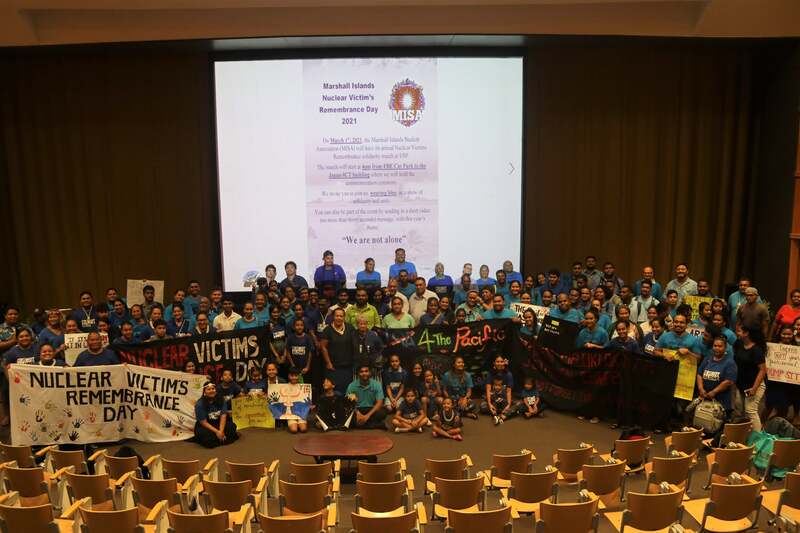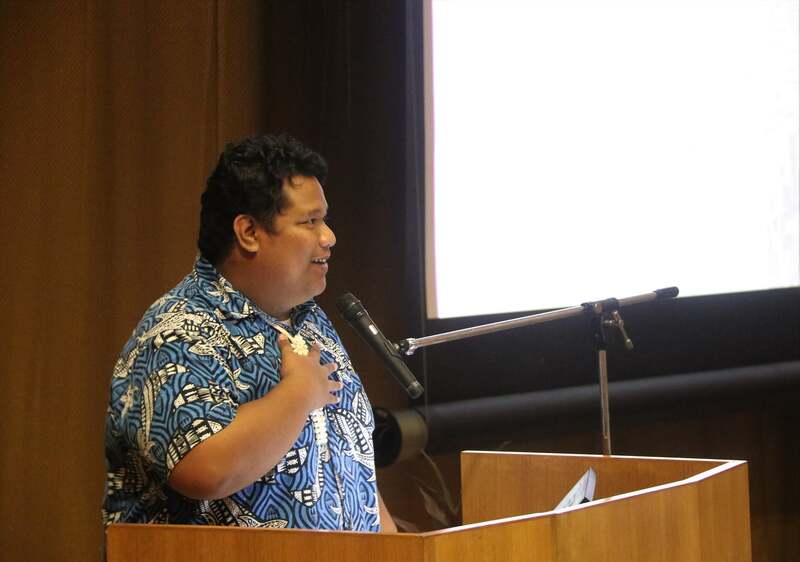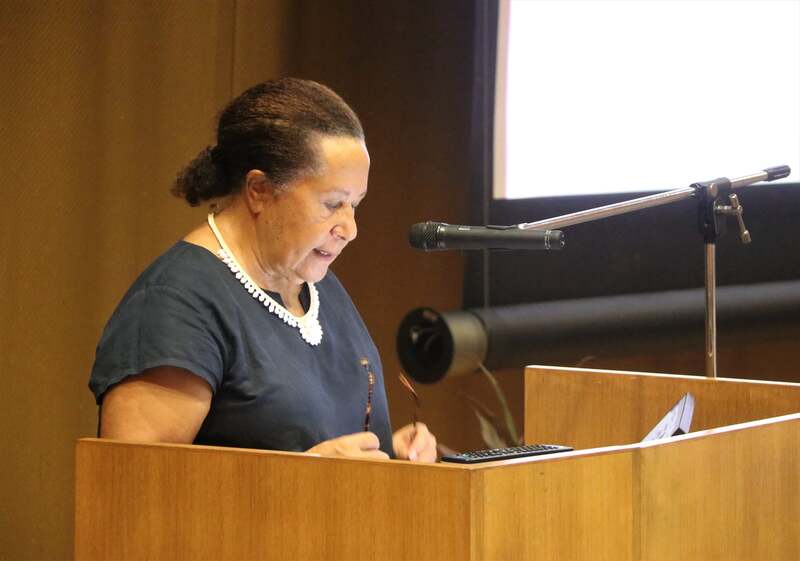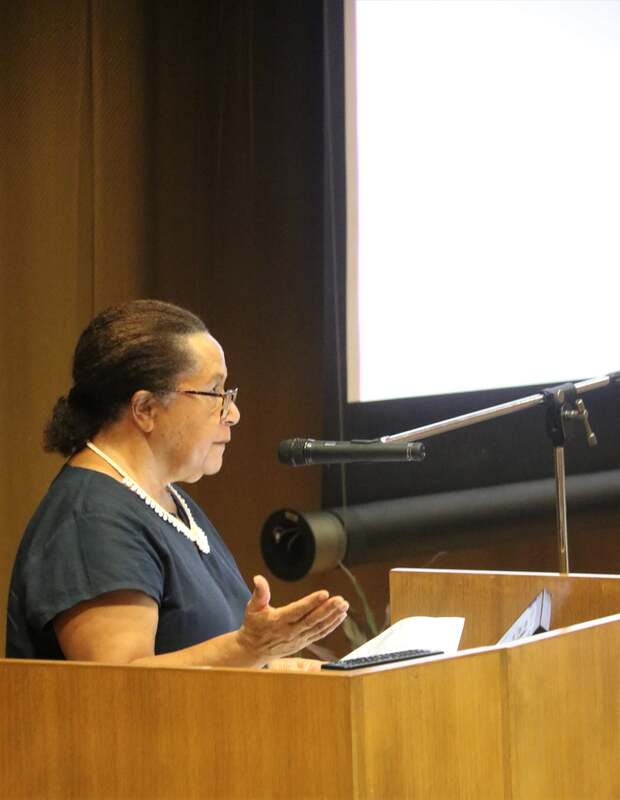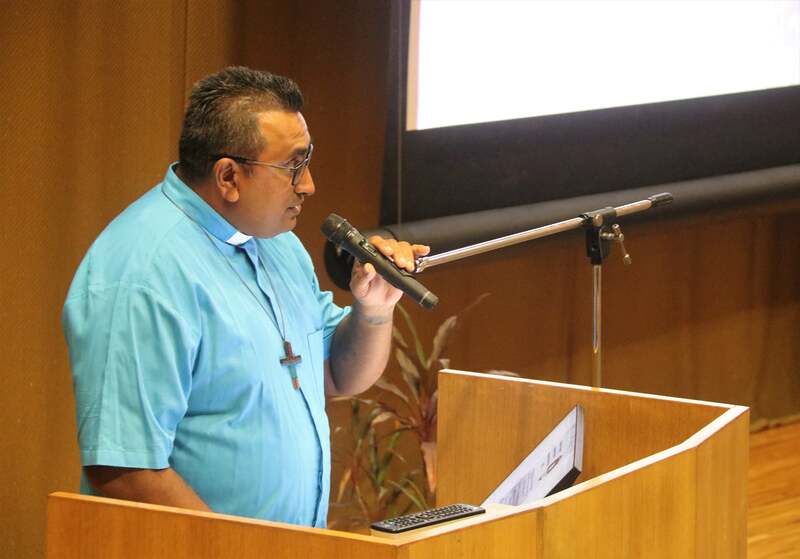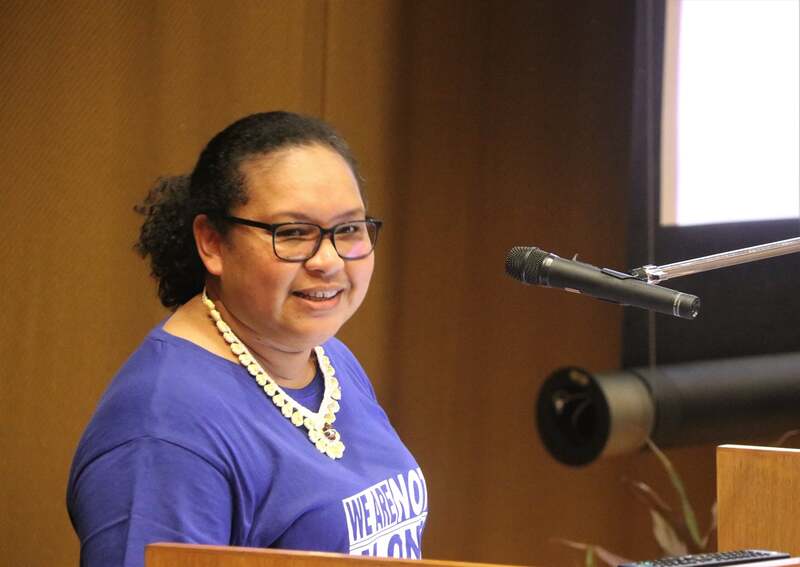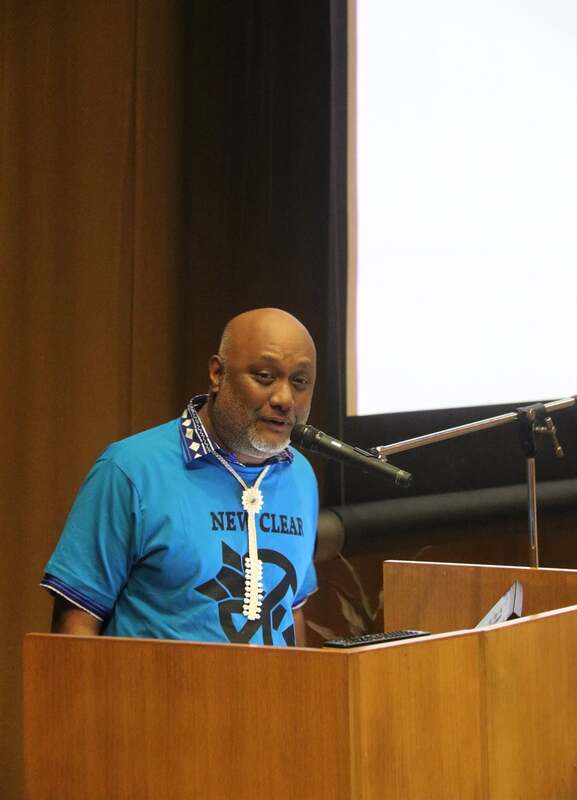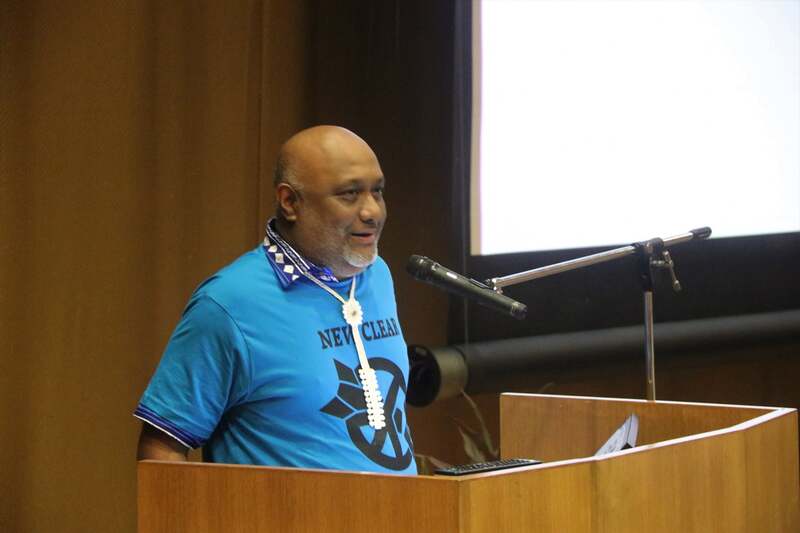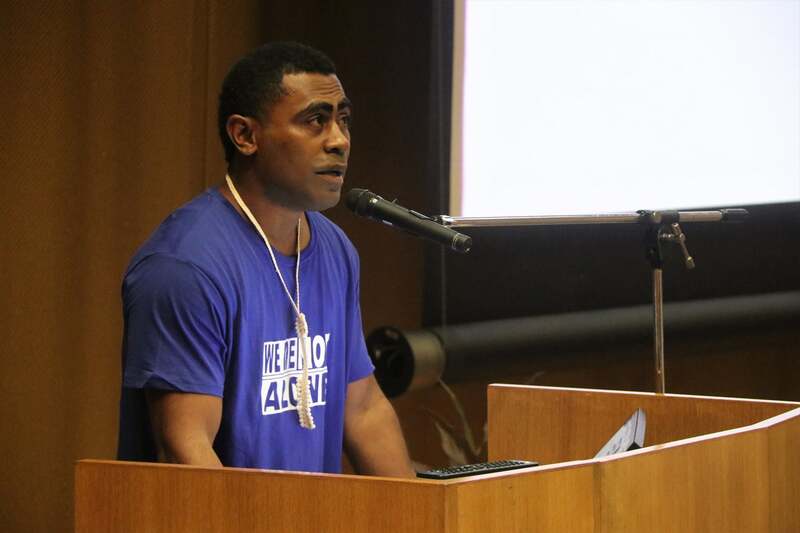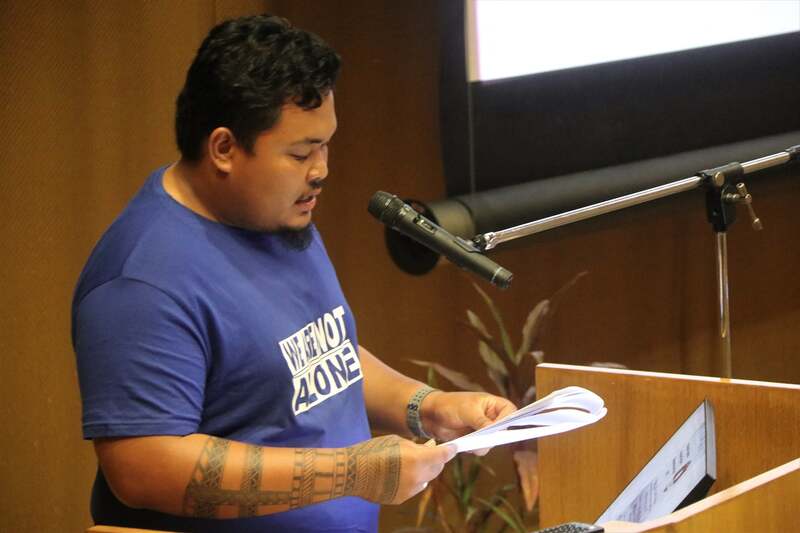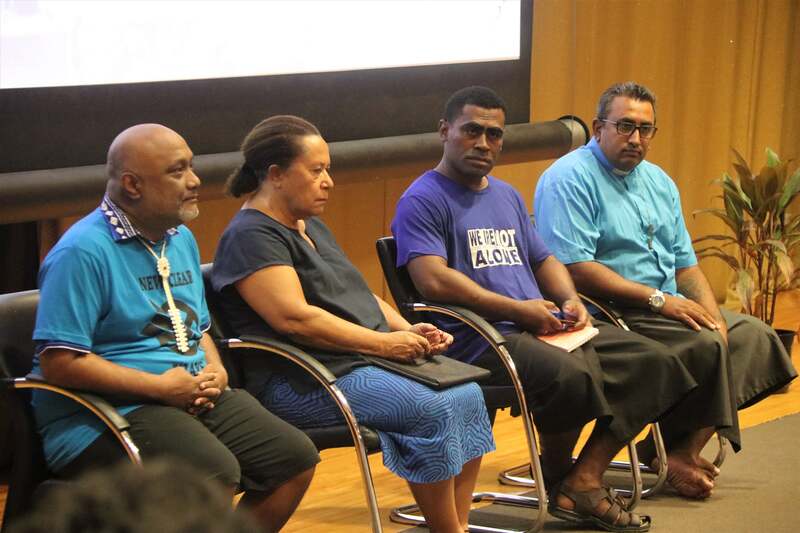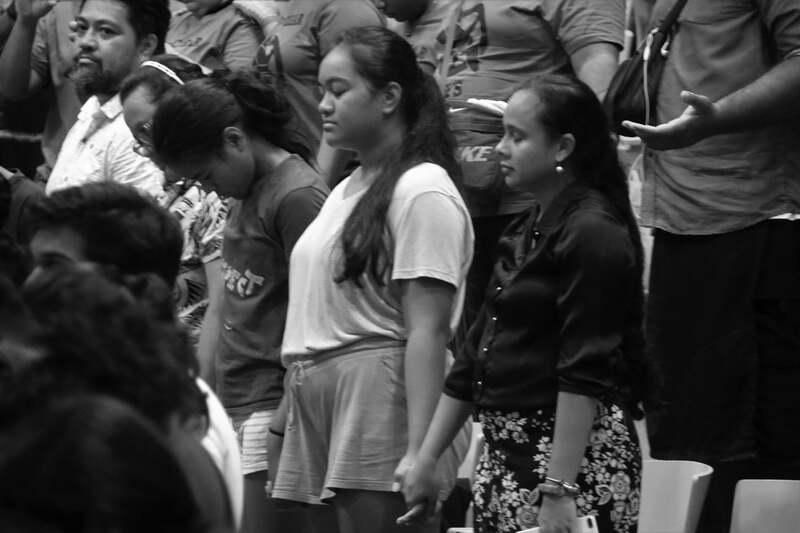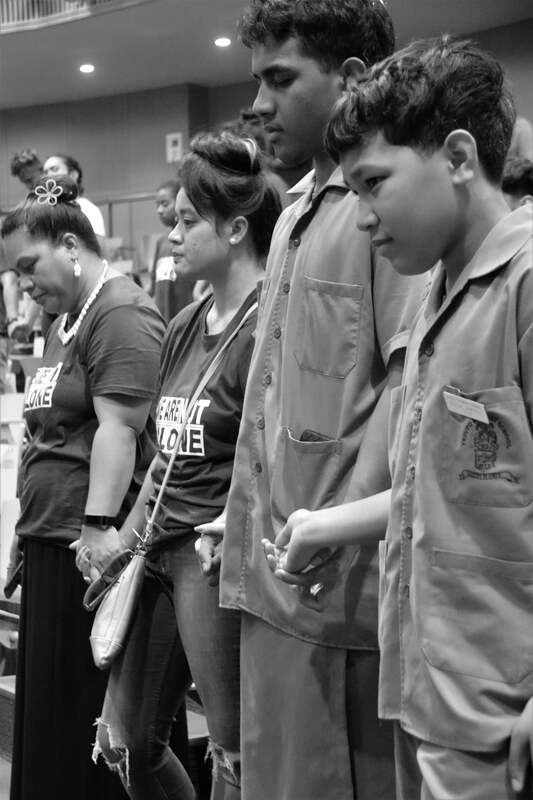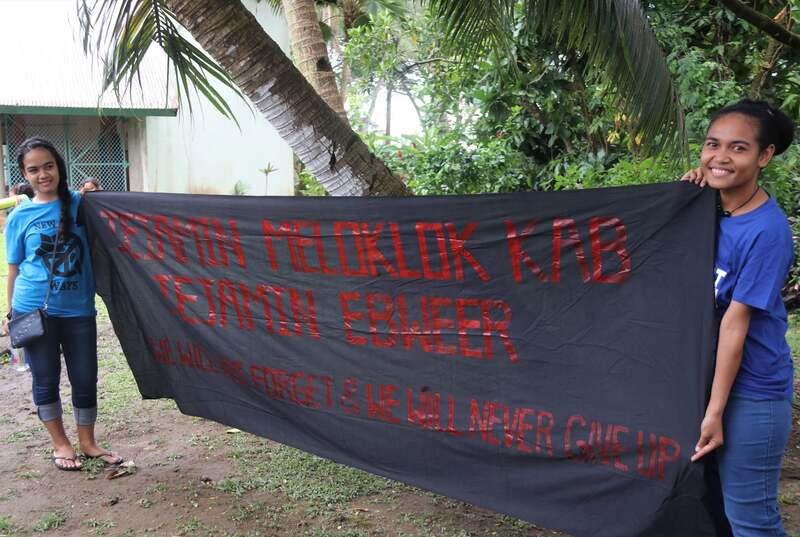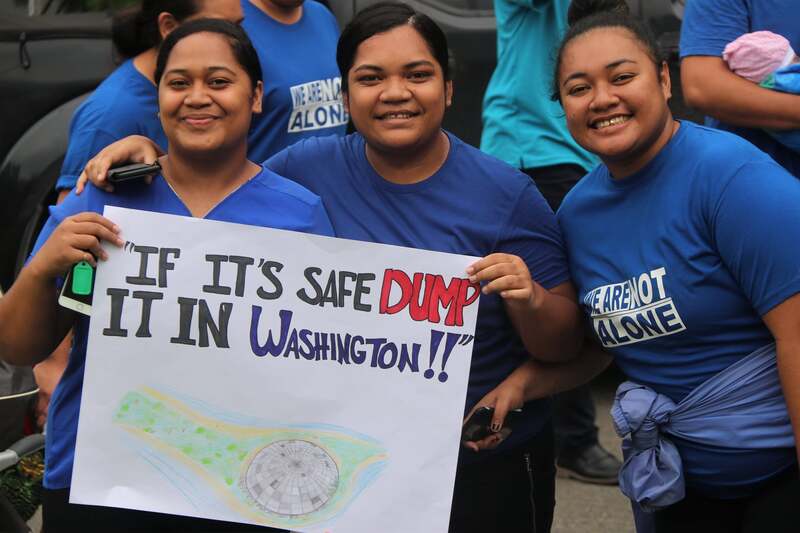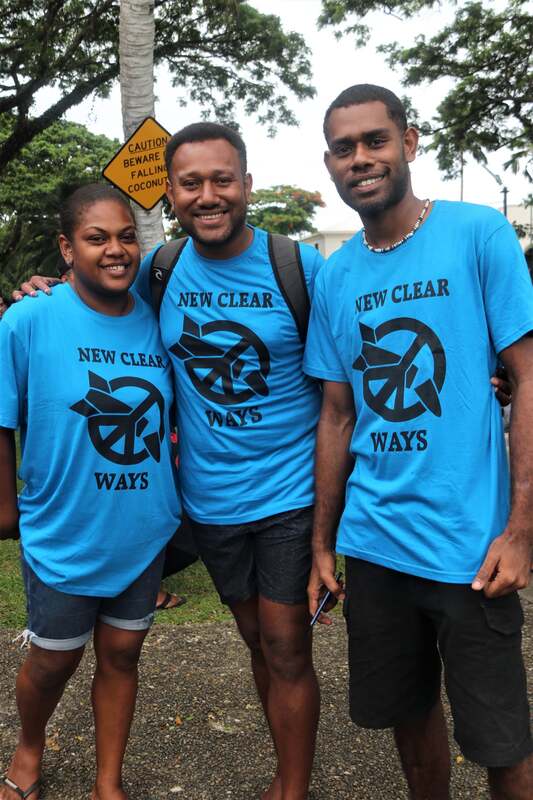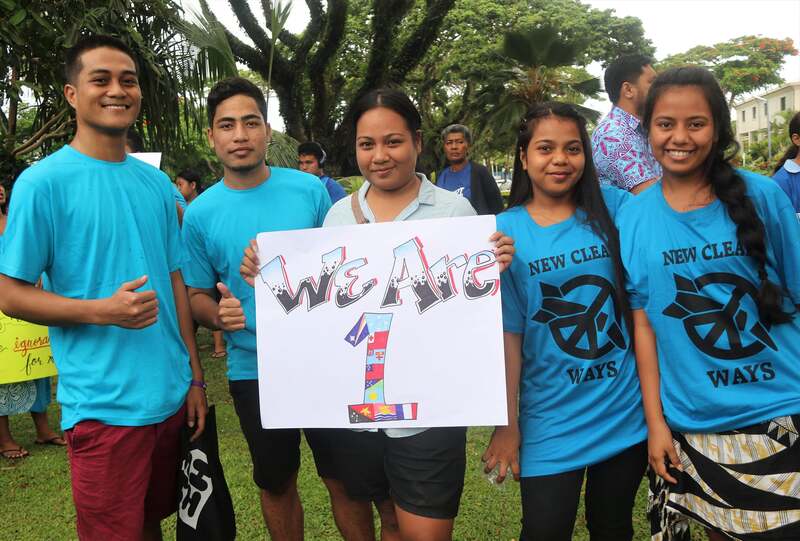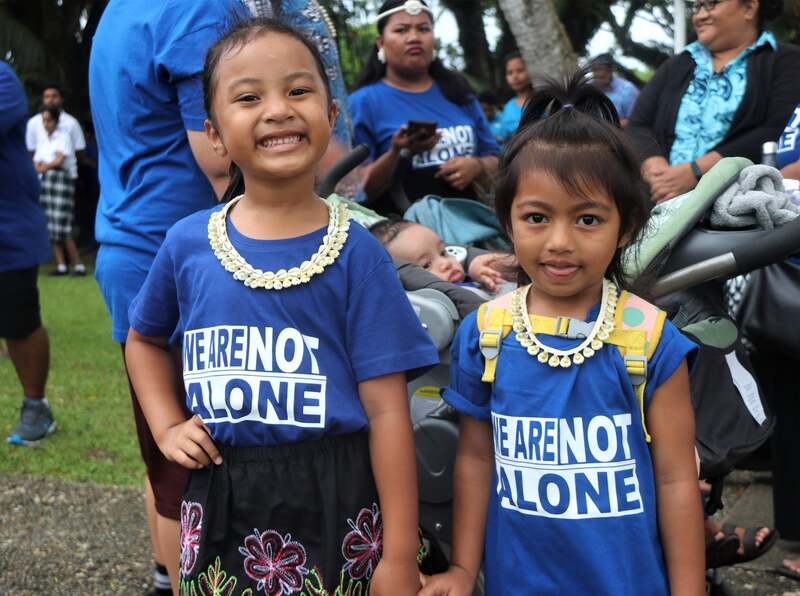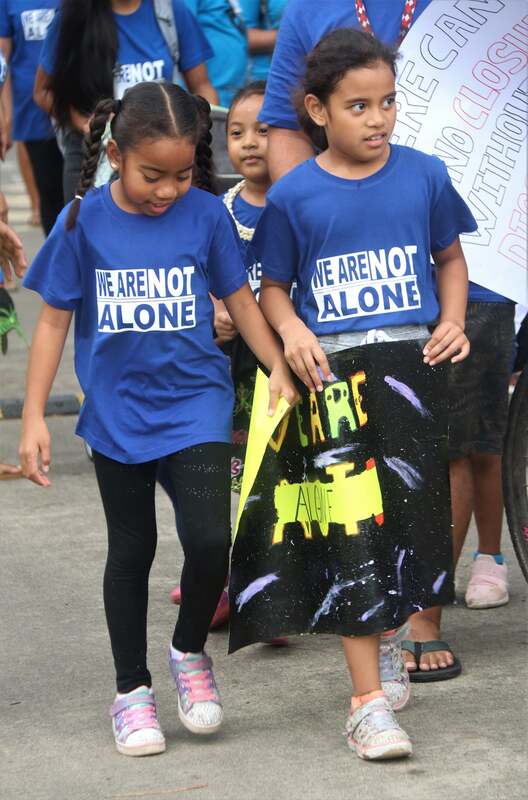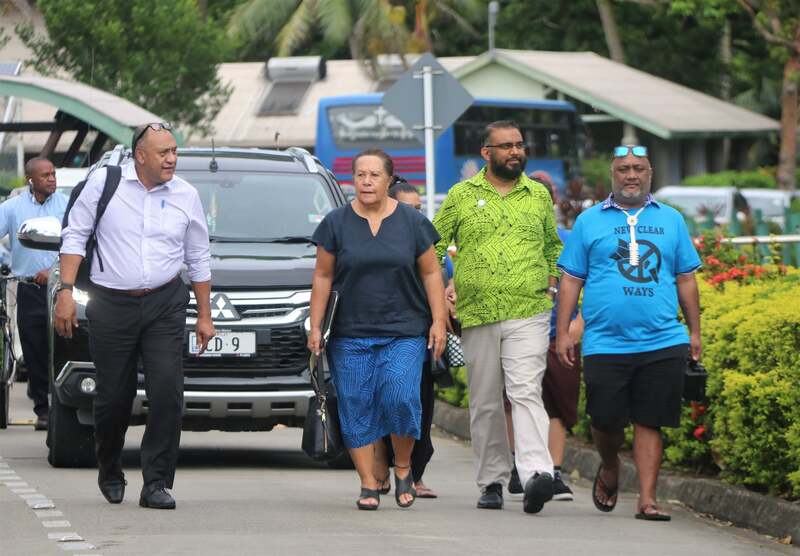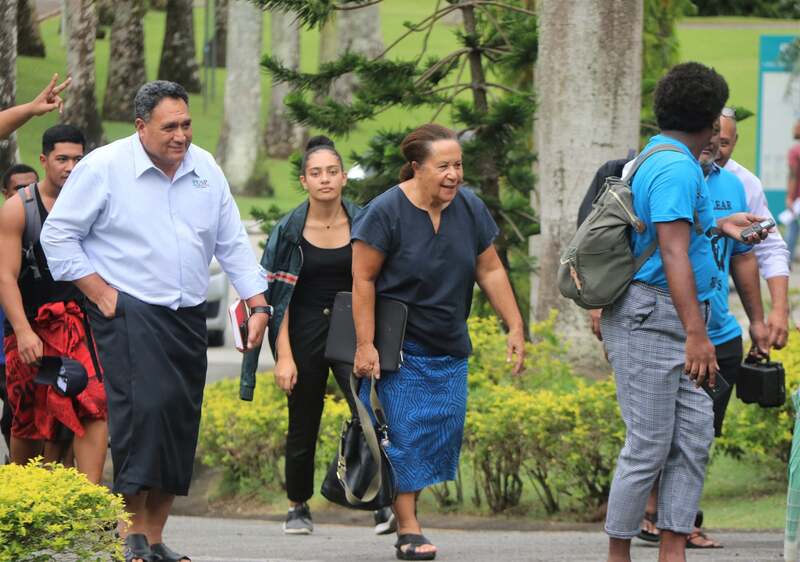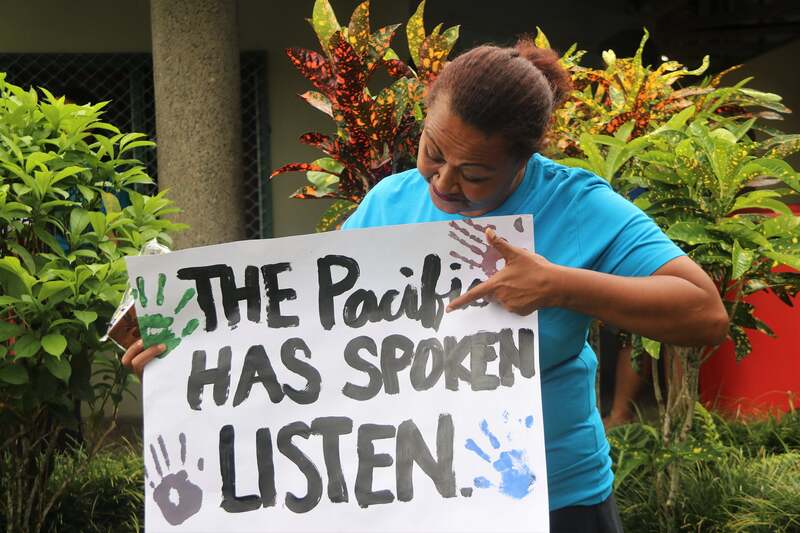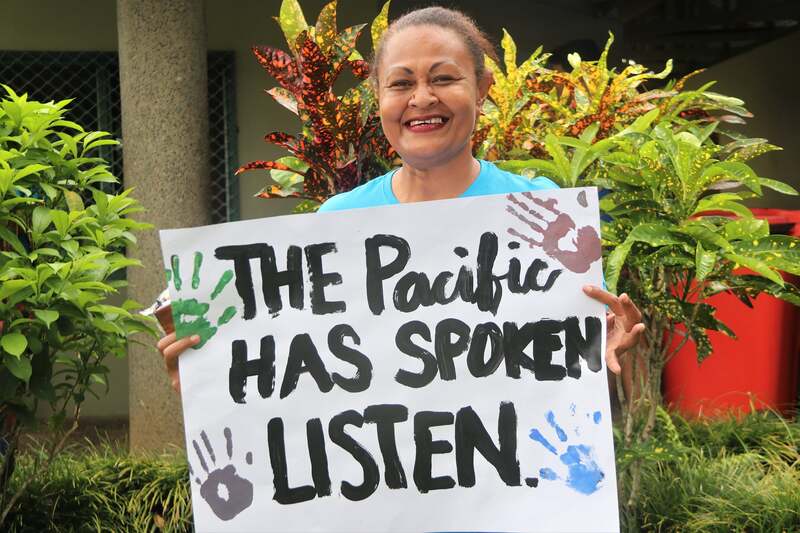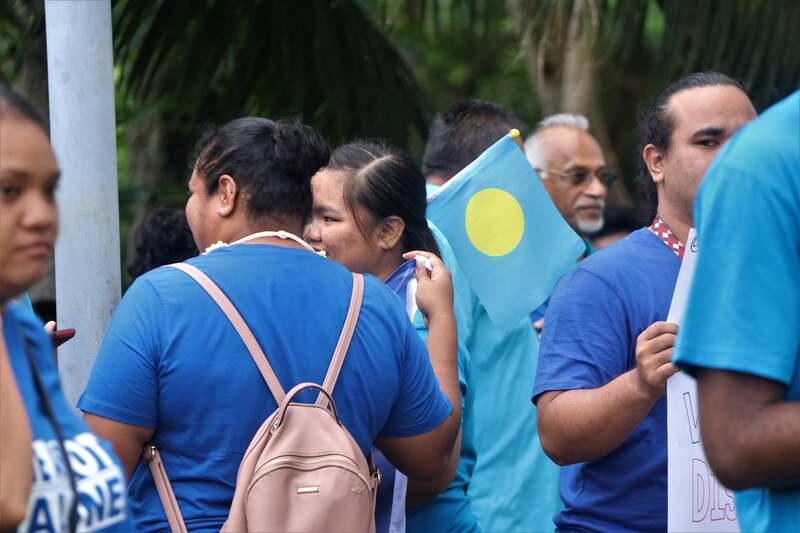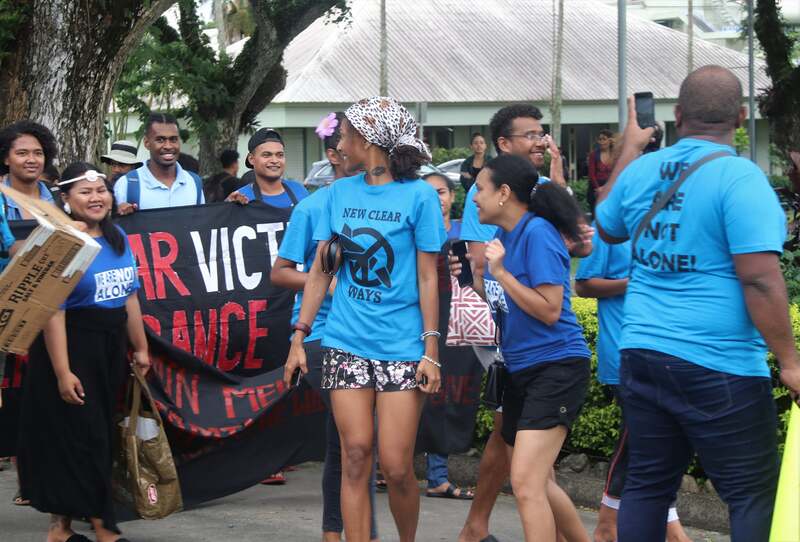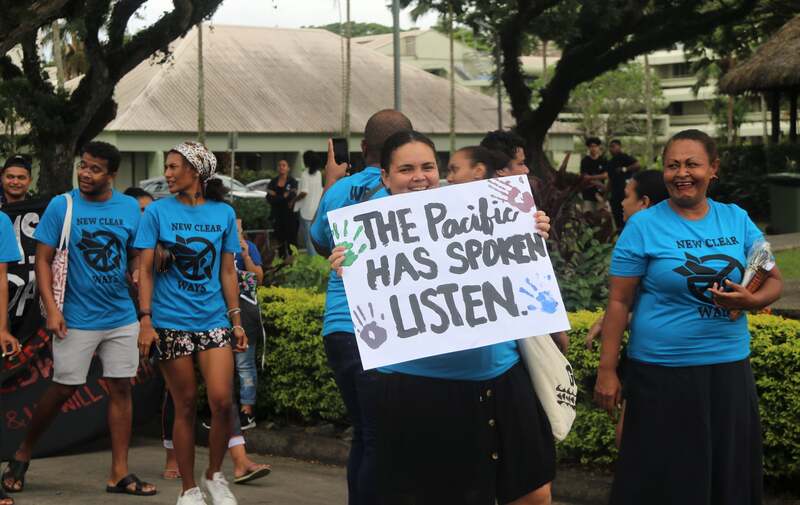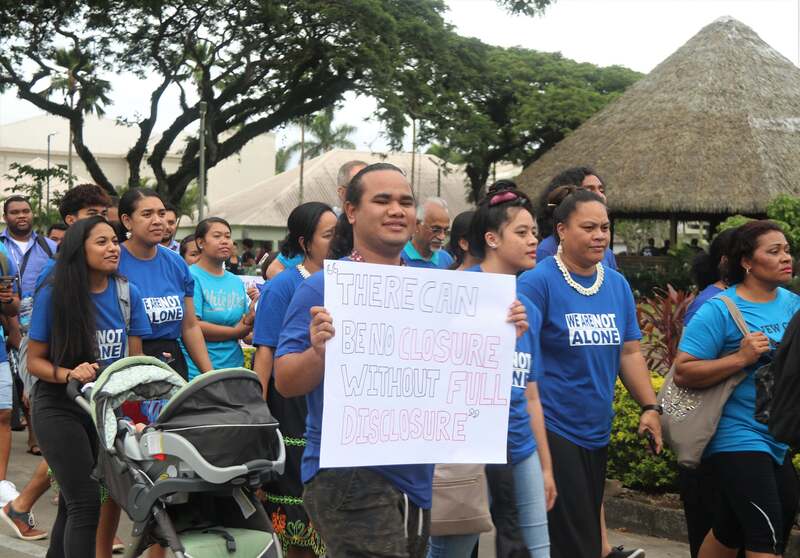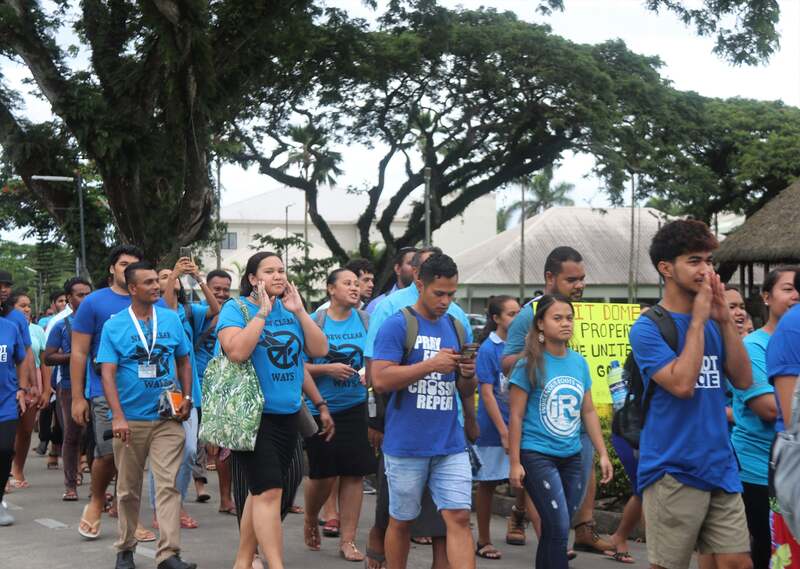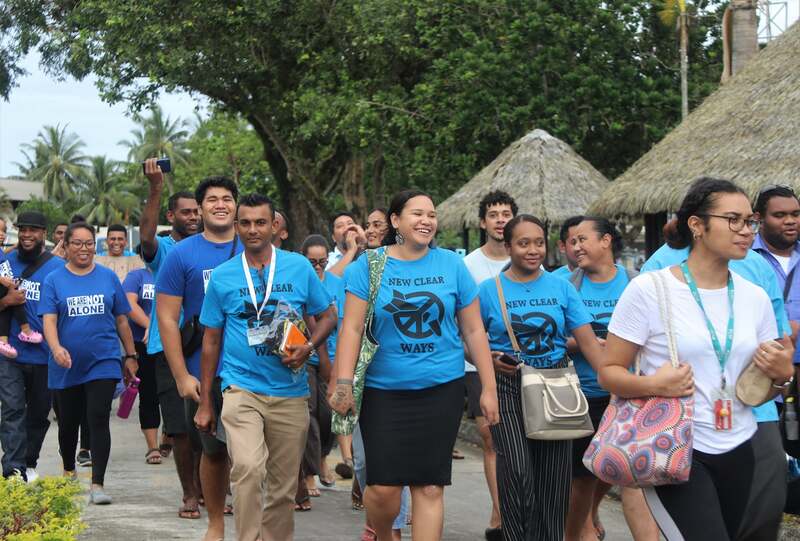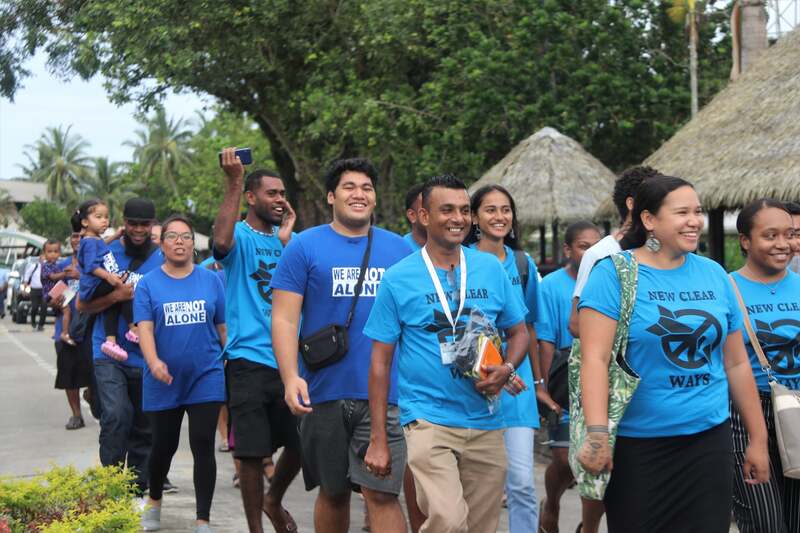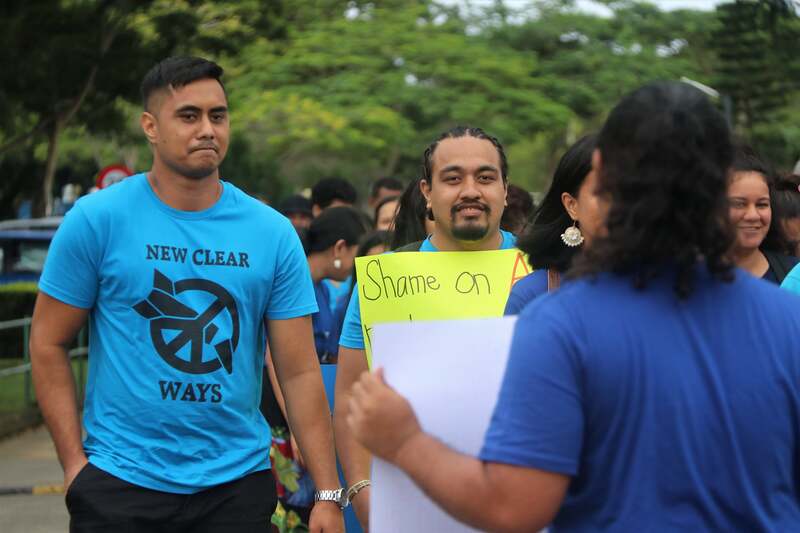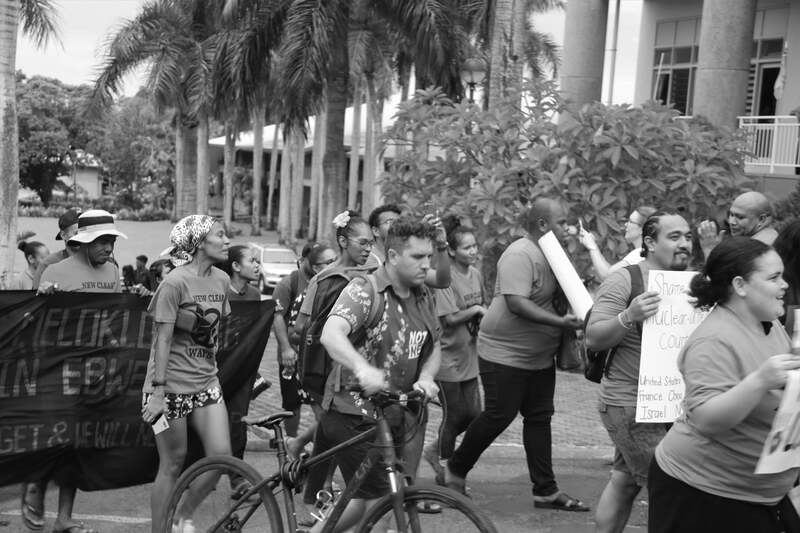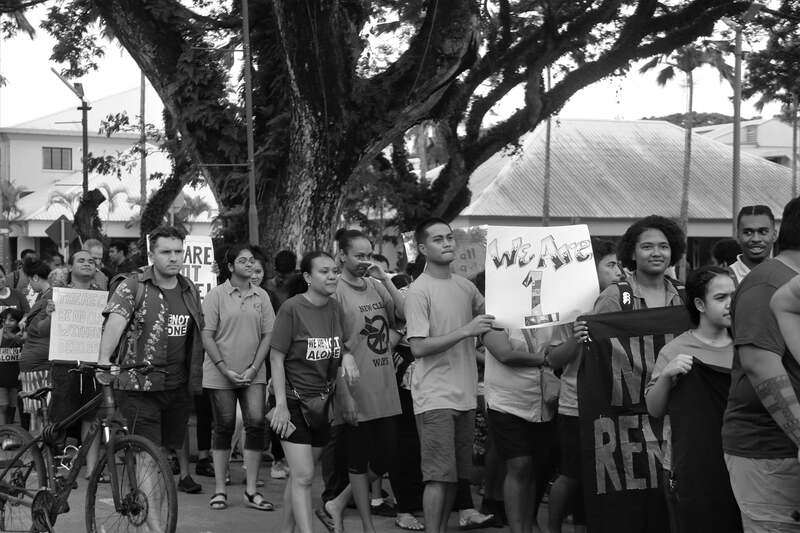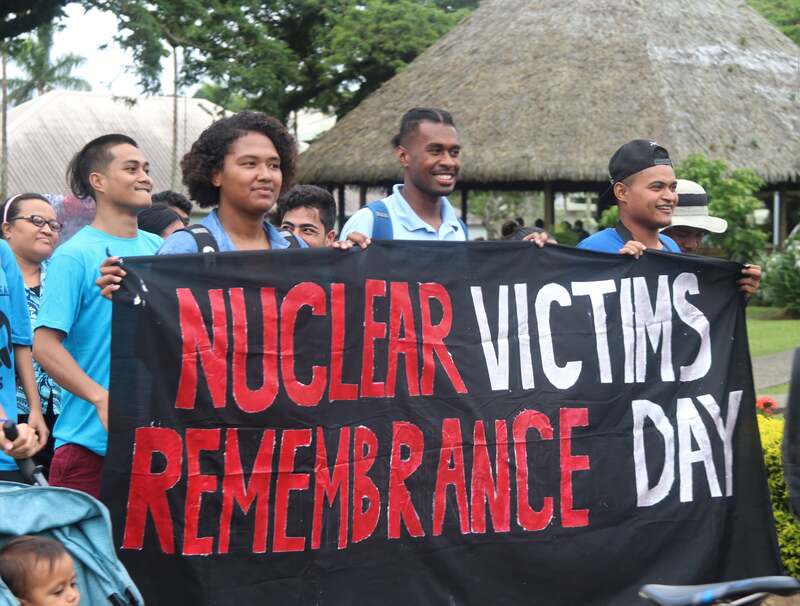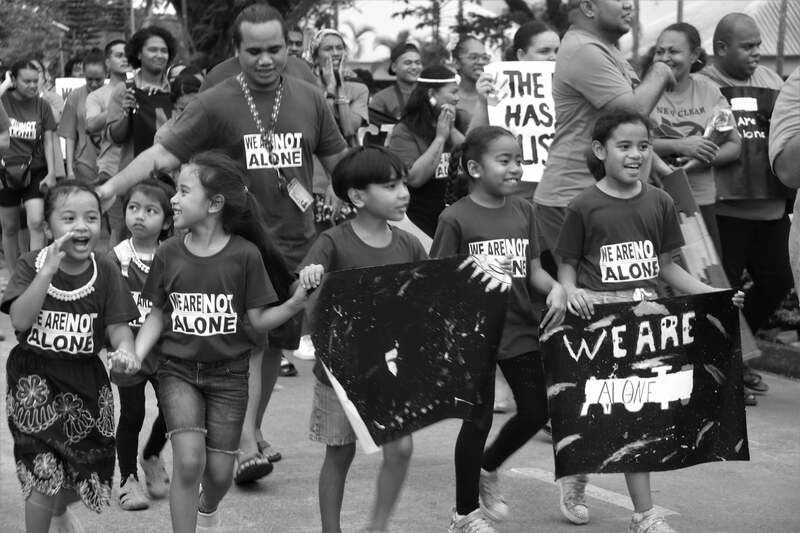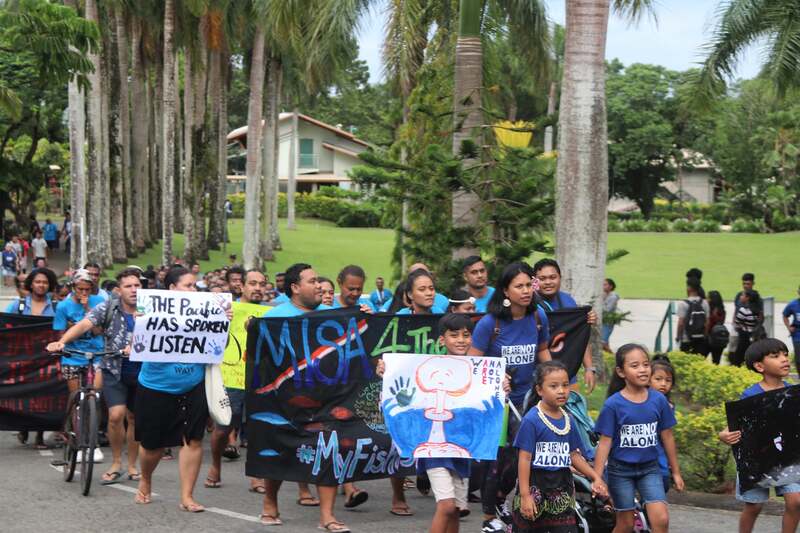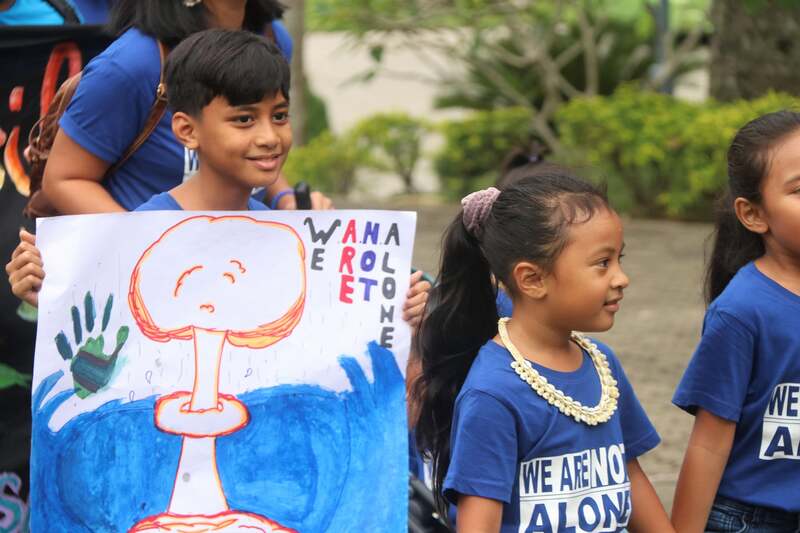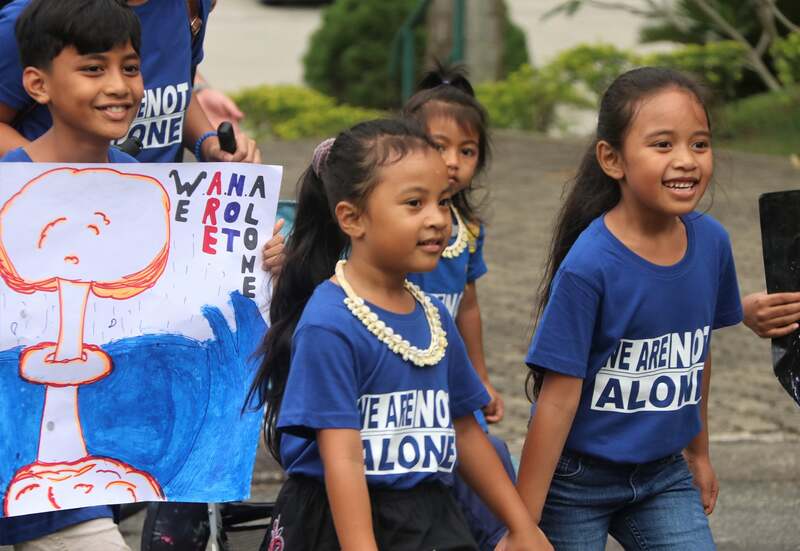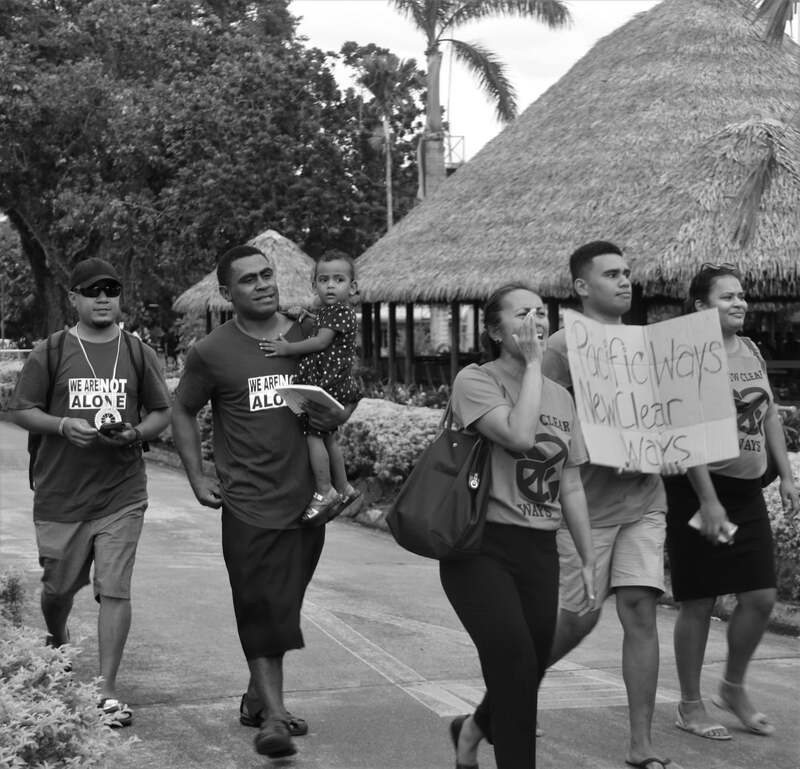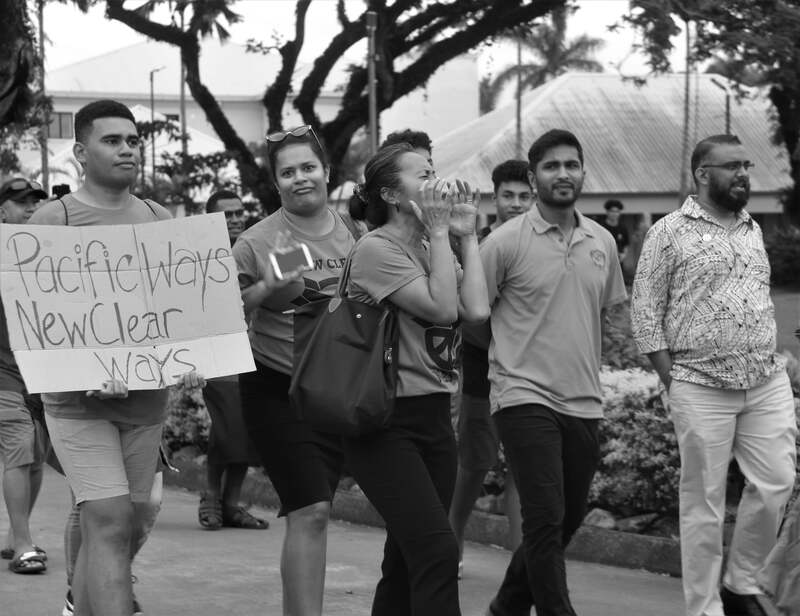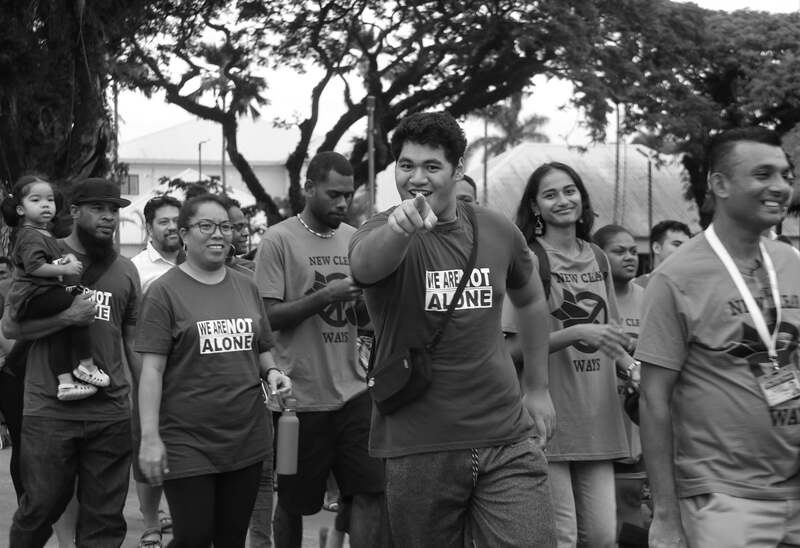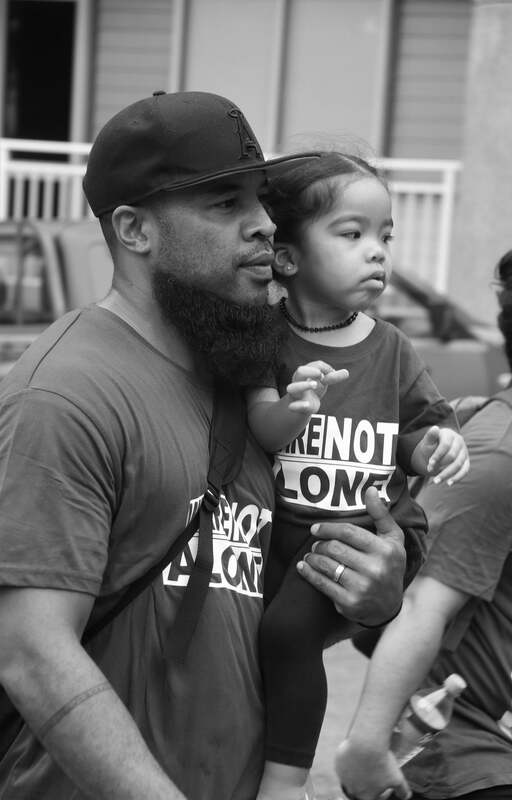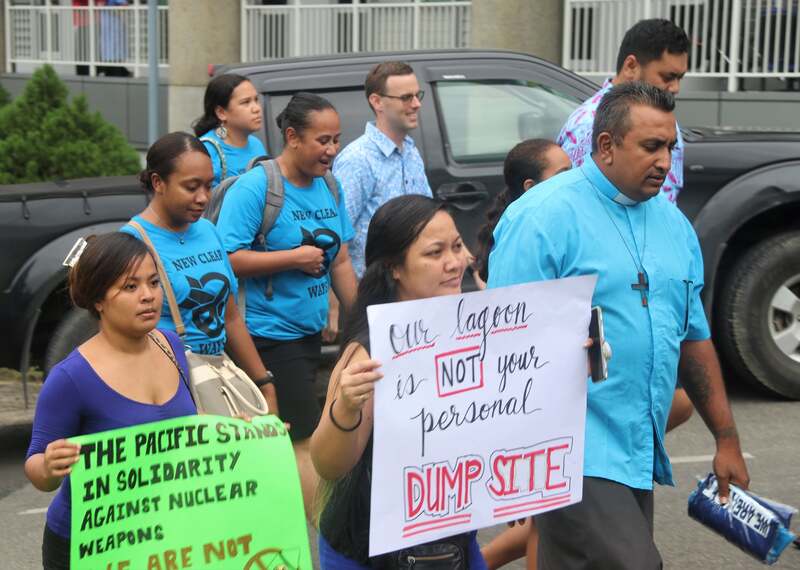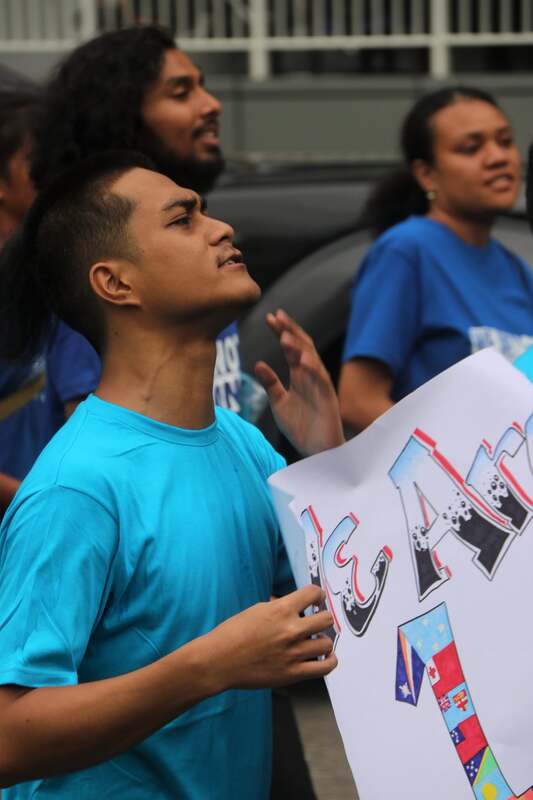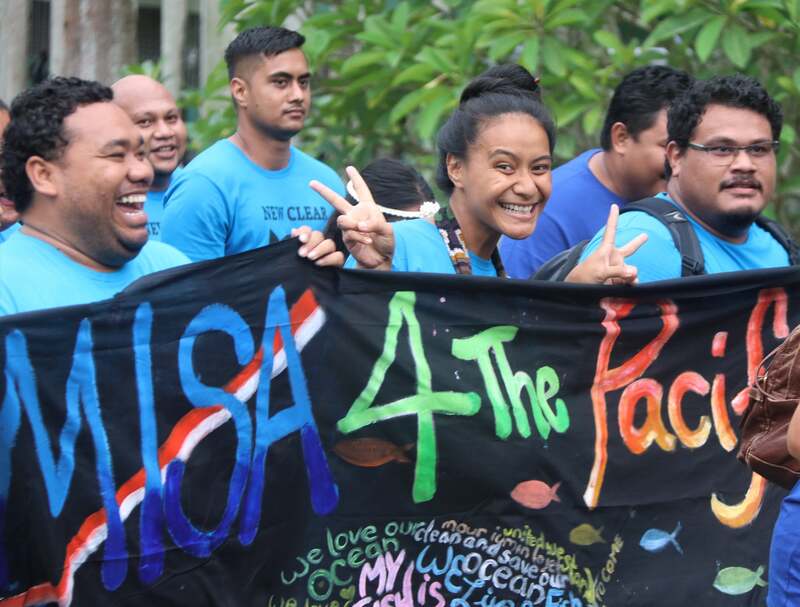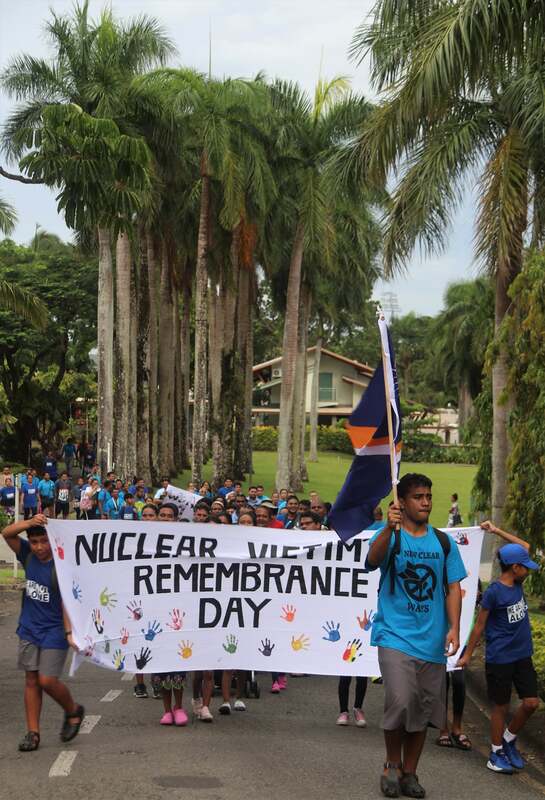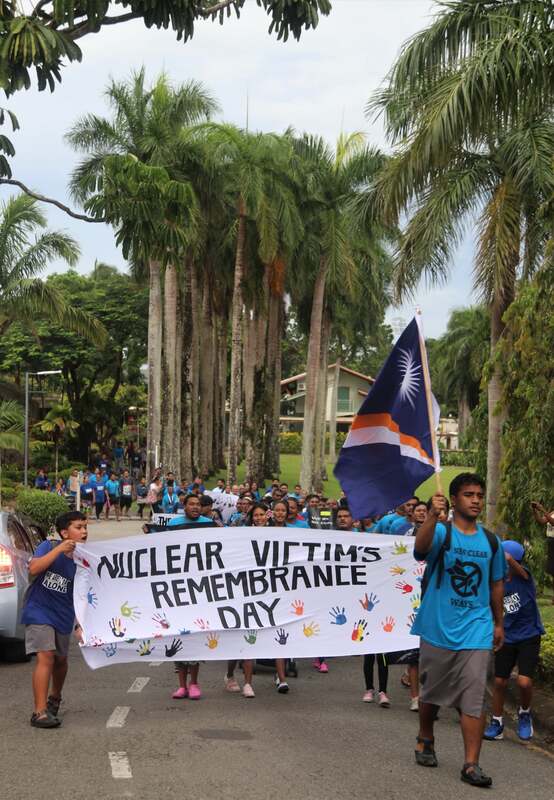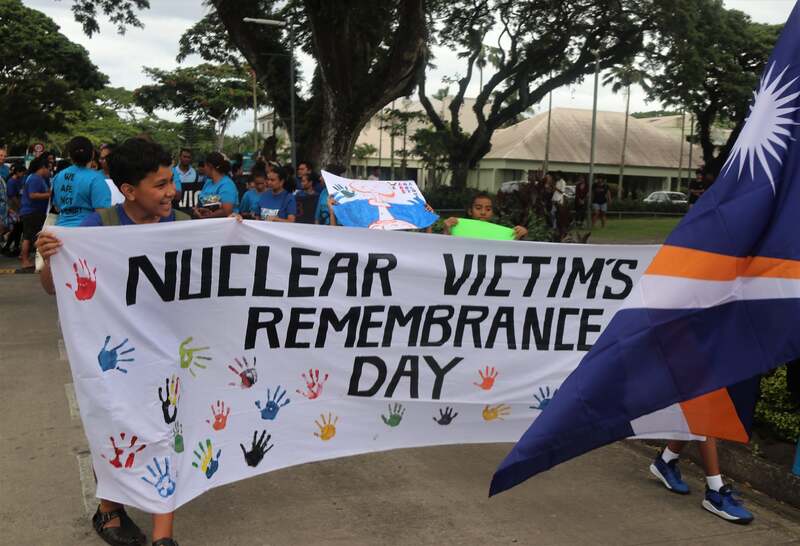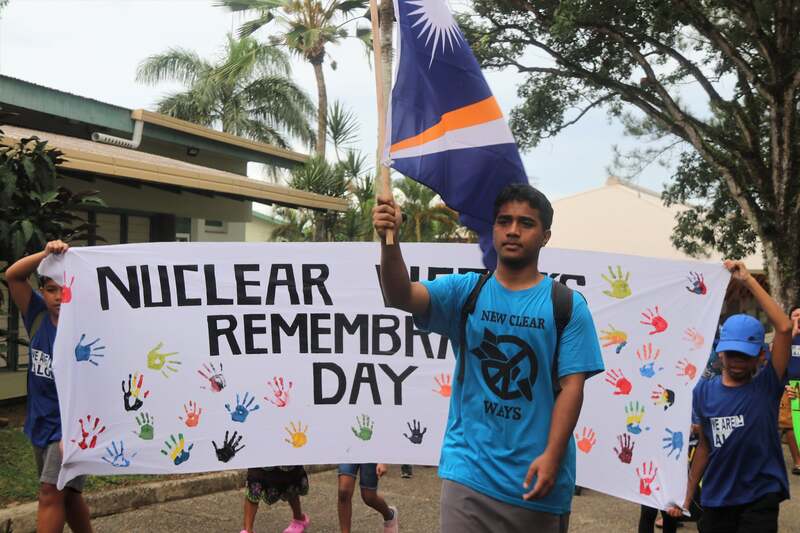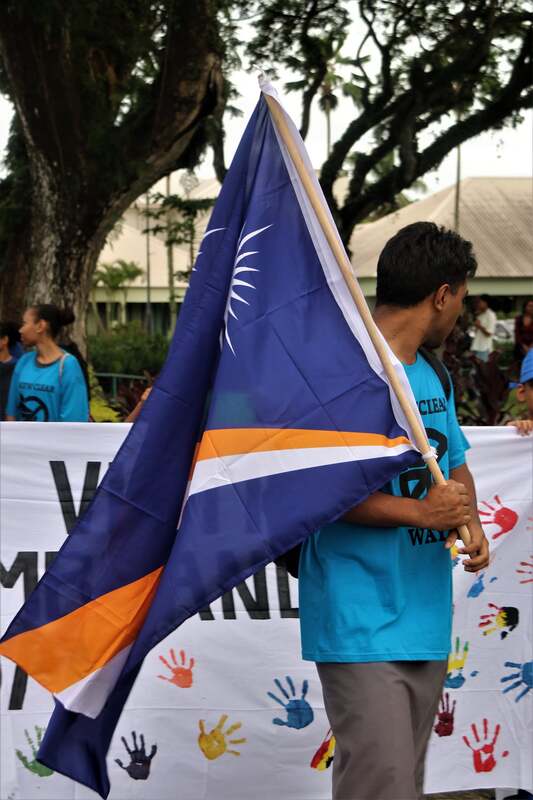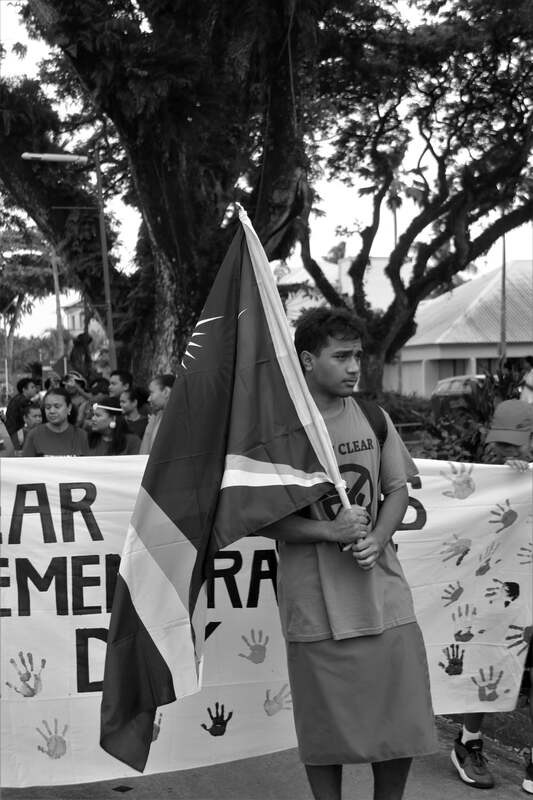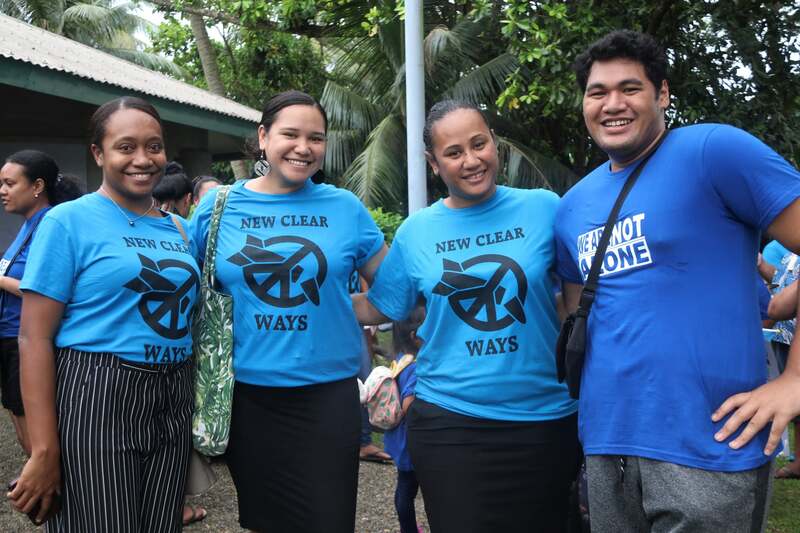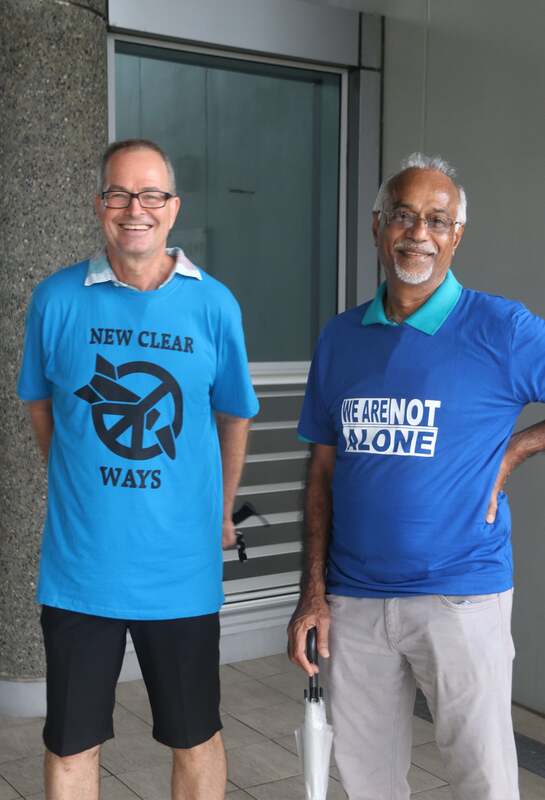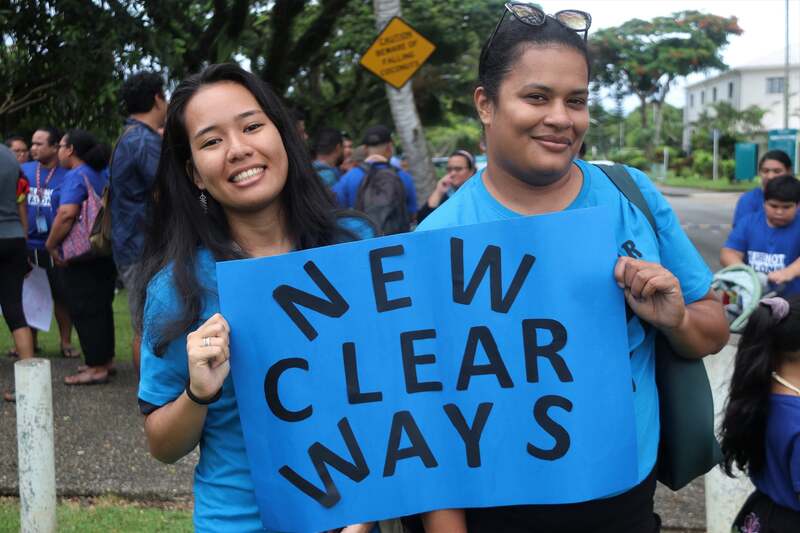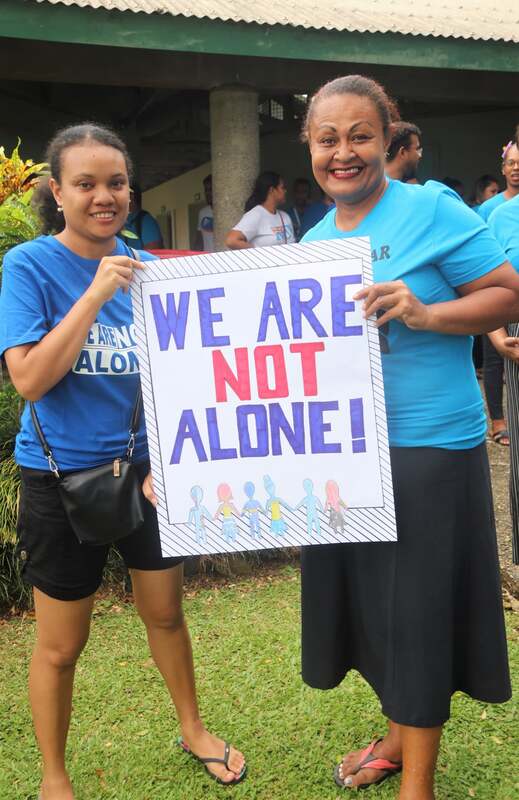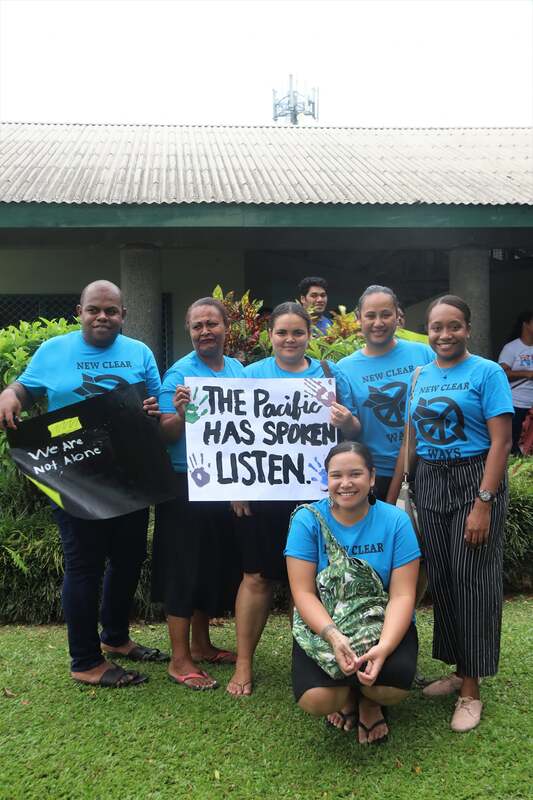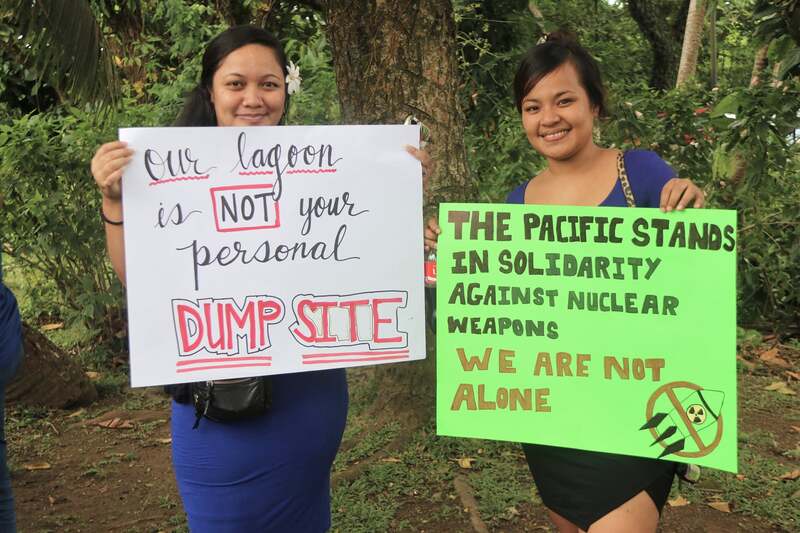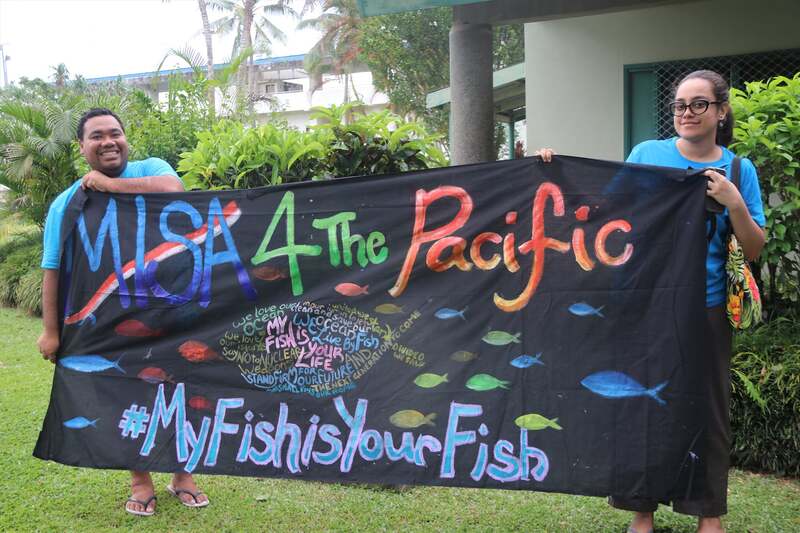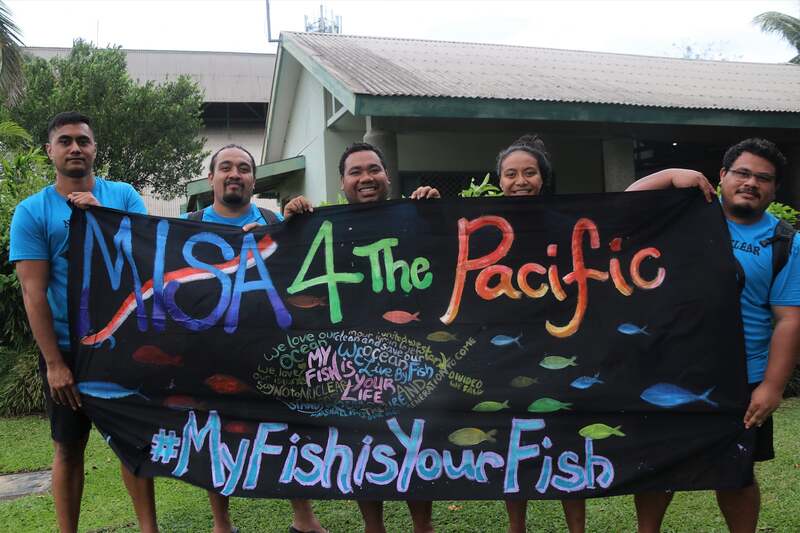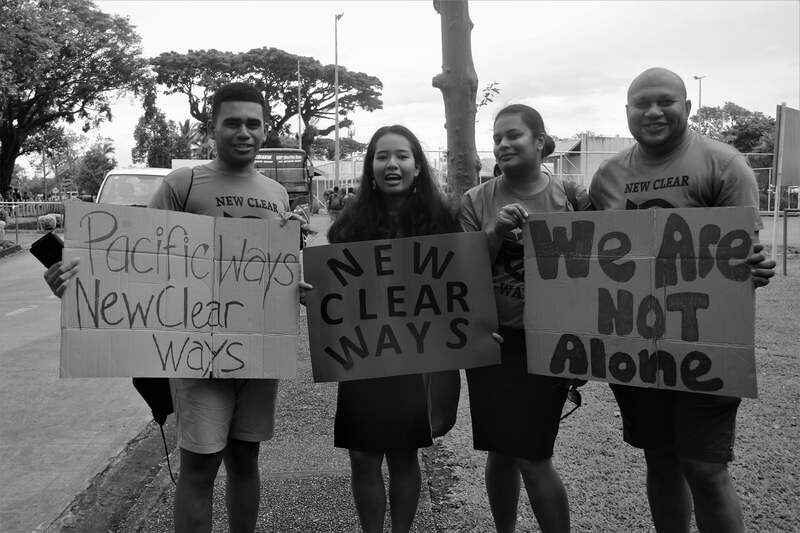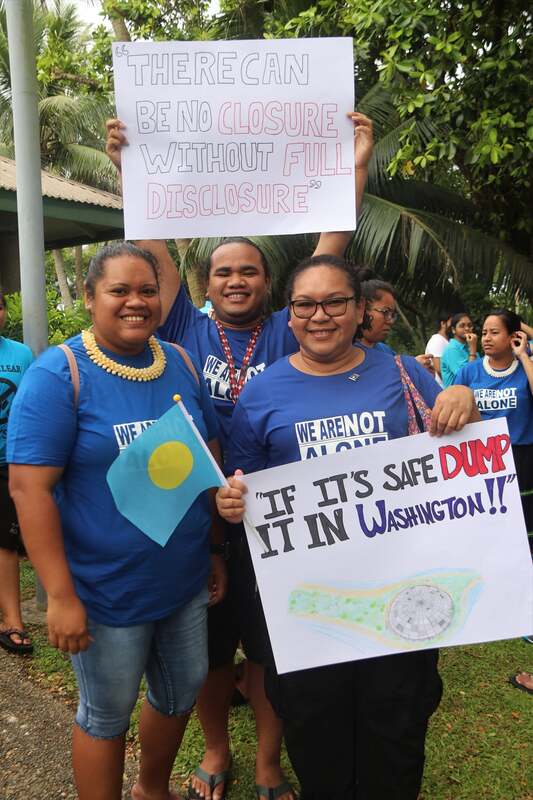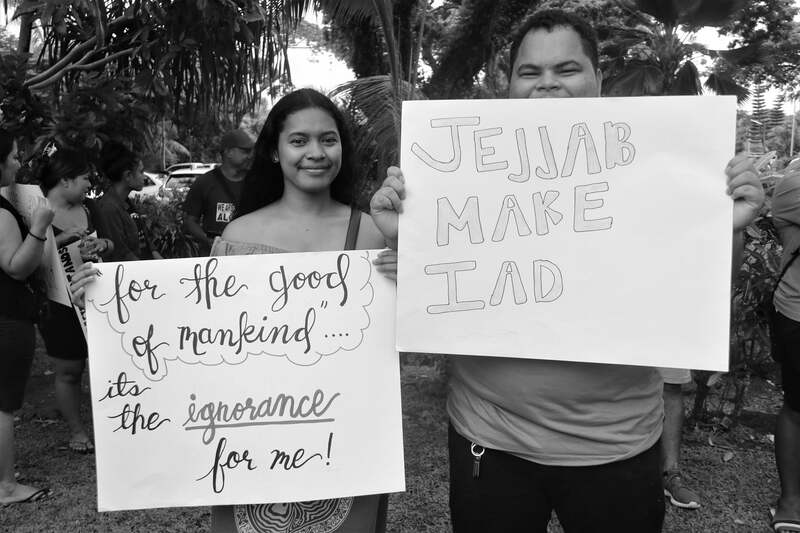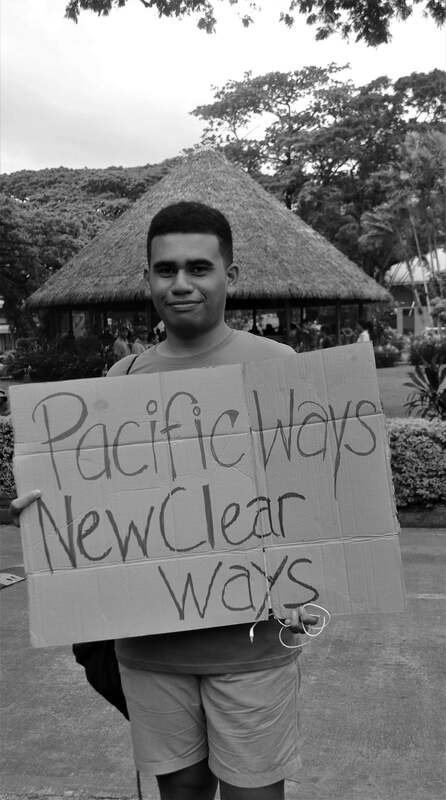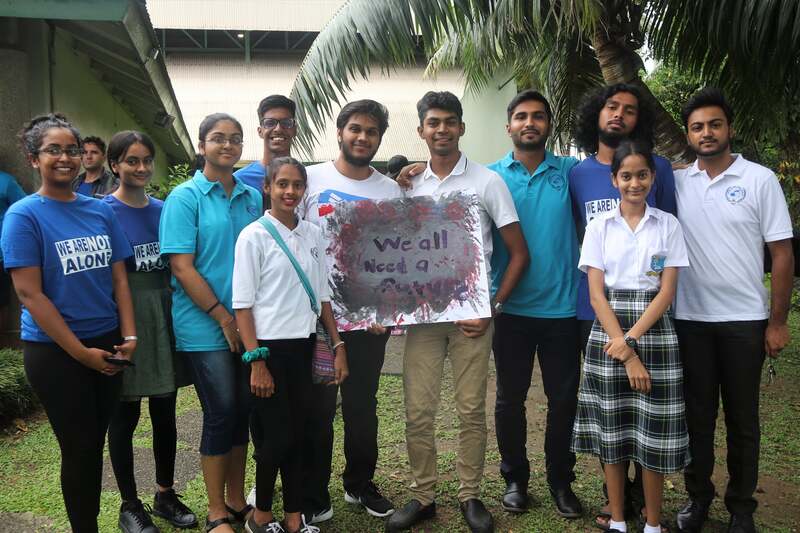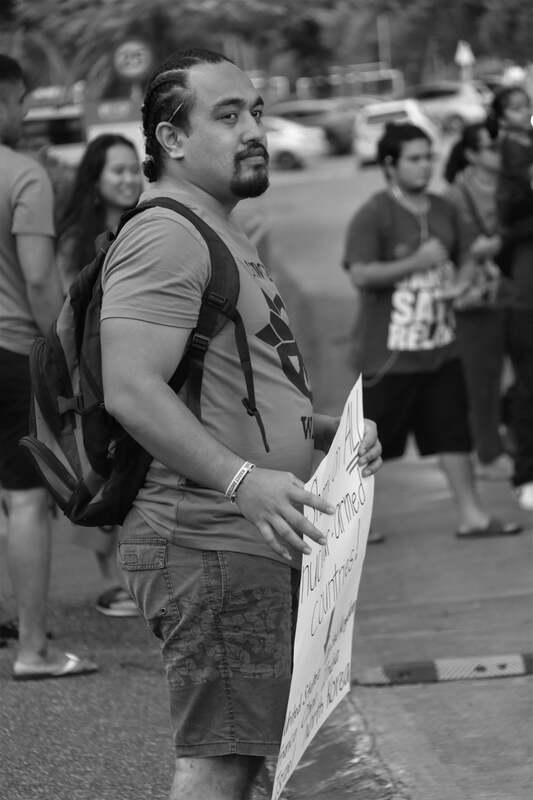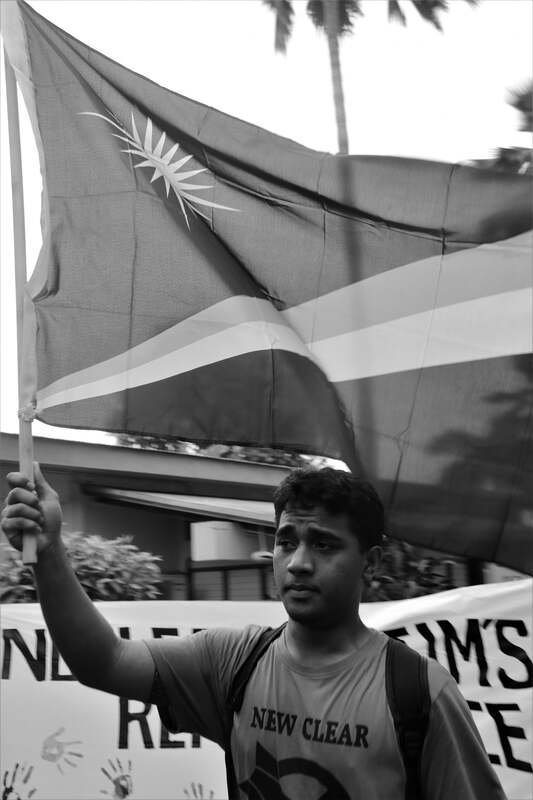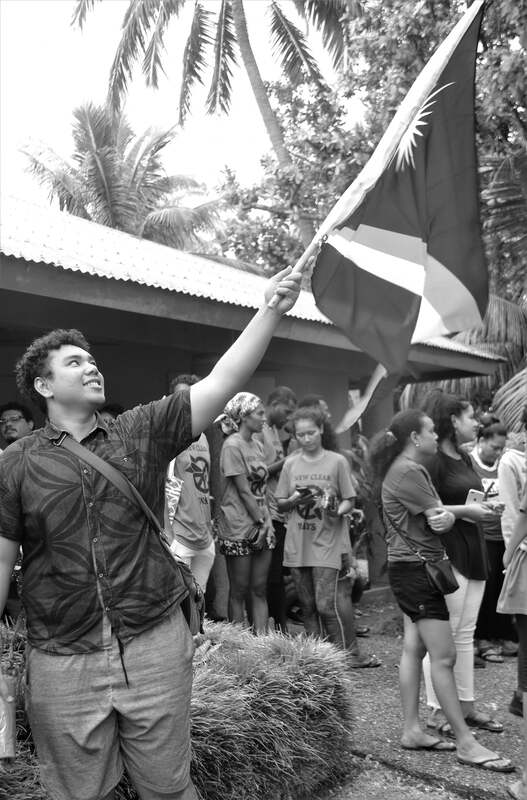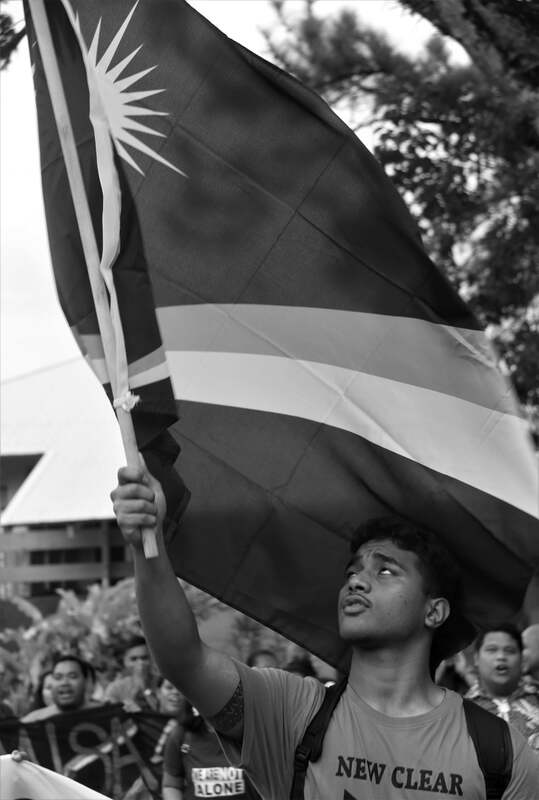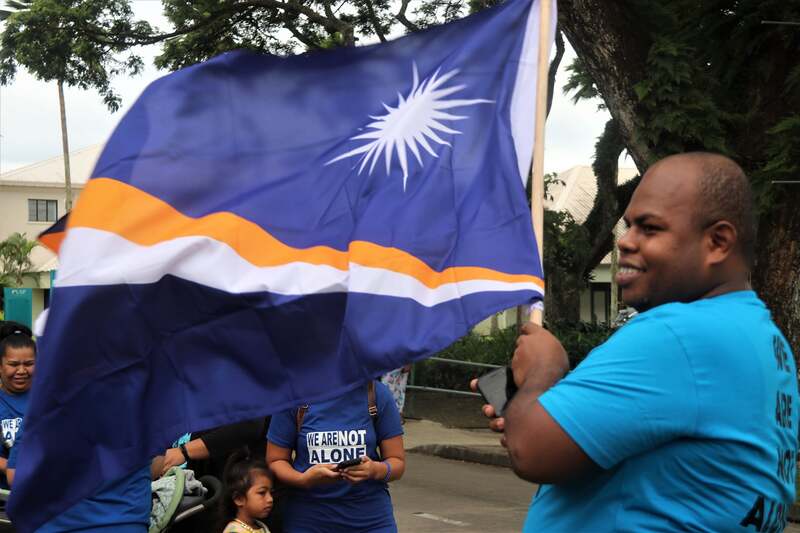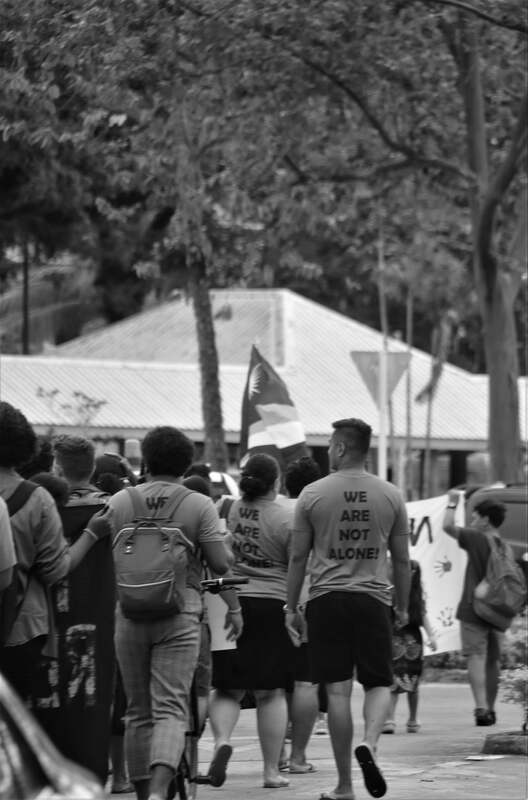Remembrance Day March
This year’s remembrance day march to commemorate the survivors and victims of nuclear testing in the Marshall Islands and the Pacific called for regional solidarity in our continuous fight for a nuclear free Pacific.
“We Are Not Alone” is this year’s theme, and as activities took place in the Marshall Islands and other parts of the Pacific to commemorate the day, the Marshall Islands Students Association (MISA) together with partners led a solidarity march at the University of the South Pacific’s Laucala campus in Suva, Fiji.
Guest speaker, Secretary General of the Pacific Islands Forum, Dame Meg Taylor, said the issue of nuclear testing and its impacts in the Pacific must be given the same attention as other regional issues such as climate change, ocean health, as they are all related.
Dame Meg acknowledged the 1985 Treaty of Rarotonga (South Pacific Nuclear Free Zone Treaty) as a testament to the power of regional solidarity, adding that it shows that collective regional action can help influence and shape action on important global issues, and in this context, the international commitment to prevent the proliferation of nuclear weapons, and commitment to world peace.
However, she said it was unfortunate that those concerns under the Treaty of Rarotonga remain largely unresolved today, 35 years later and had stressed that shifting global and regional geopolitics are creating a heightened sense of uncertainty.
Dame Meg said nuclear threats exacerbate many of the “vulnerabilities we already face in our region, and in all its facets, our people, our homes, and the health and resilience of our Ocean and its resources, and we must ensure issues of nuclear legacy, climate change, human rights, our environment and our people are at the core of policies such as the 2050 Pacific Strategy.
The event also acknowledged the activism and solidarity of the Nuclear Free and Independent Pacifica Movement, including a NFIP member, Dr Claire Slatter who was present at the event.
The solidarity march was attended by the Marshallese community, Suva based NGOs, youth movements, students and staff of USP, churches and Suva residents.
“We Are Not Alone” is this year’s theme, and as activities took place in the Marshall Islands and other parts of the Pacific to commemorate the day, the Marshall Islands Students Association (MISA) together with partners led a solidarity march at the University of the South Pacific’s Laucala campus in Suva, Fiji.
Guest speaker, Secretary General of the Pacific Islands Forum, Dame Meg Taylor, said the issue of nuclear testing and its impacts in the Pacific must be given the same attention as other regional issues such as climate change, ocean health, as they are all related.
Dame Meg acknowledged the 1985 Treaty of Rarotonga (South Pacific Nuclear Free Zone Treaty) as a testament to the power of regional solidarity, adding that it shows that collective regional action can help influence and shape action on important global issues, and in this context, the international commitment to prevent the proliferation of nuclear weapons, and commitment to world peace.
However, she said it was unfortunate that those concerns under the Treaty of Rarotonga remain largely unresolved today, 35 years later and had stressed that shifting global and regional geopolitics are creating a heightened sense of uncertainty.
Dame Meg said nuclear threats exacerbate many of the “vulnerabilities we already face in our region, and in all its facets, our people, our homes, and the health and resilience of our Ocean and its resources, and we must ensure issues of nuclear legacy, climate change, human rights, our environment and our people are at the core of policies such as the 2050 Pacific Strategy.
The event also acknowledged the activism and solidarity of the Nuclear Free and Independent Pacifica Movement, including a NFIP member, Dr Claire Slatter who was present at the event.
The solidarity march was attended by the Marshallese community, Suva based NGOs, youth movements, students and staff of USP, churches and Suva residents.
We Are Not Alone Statement
| ||||||||
